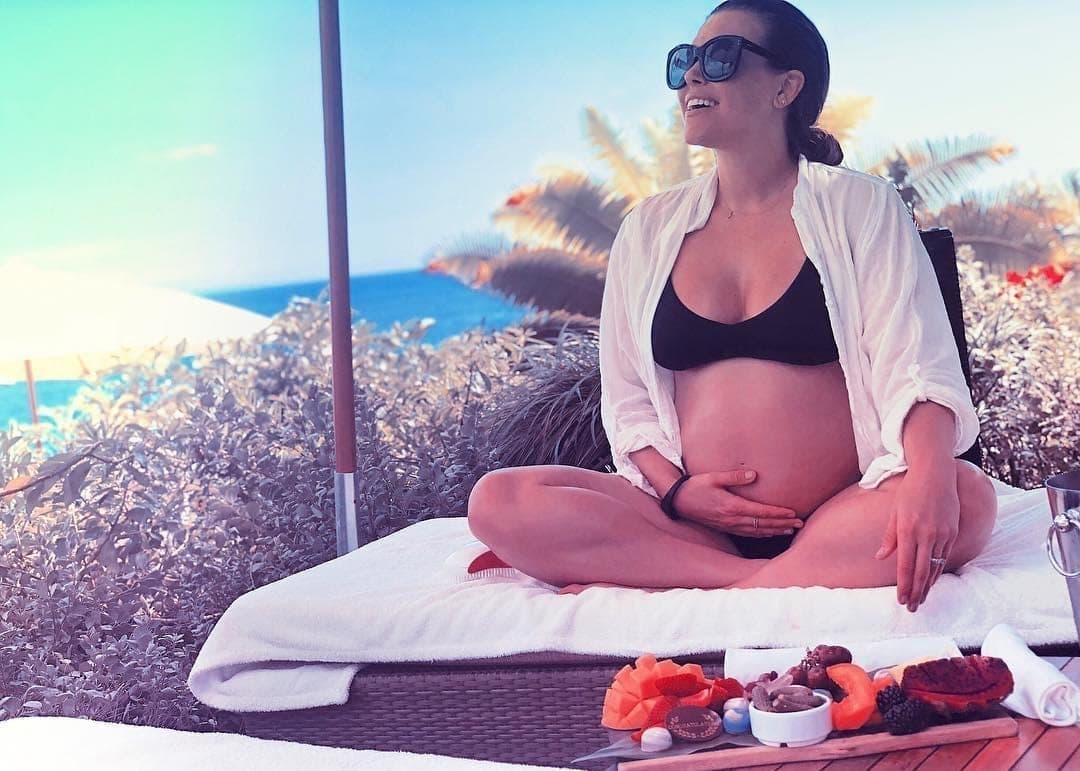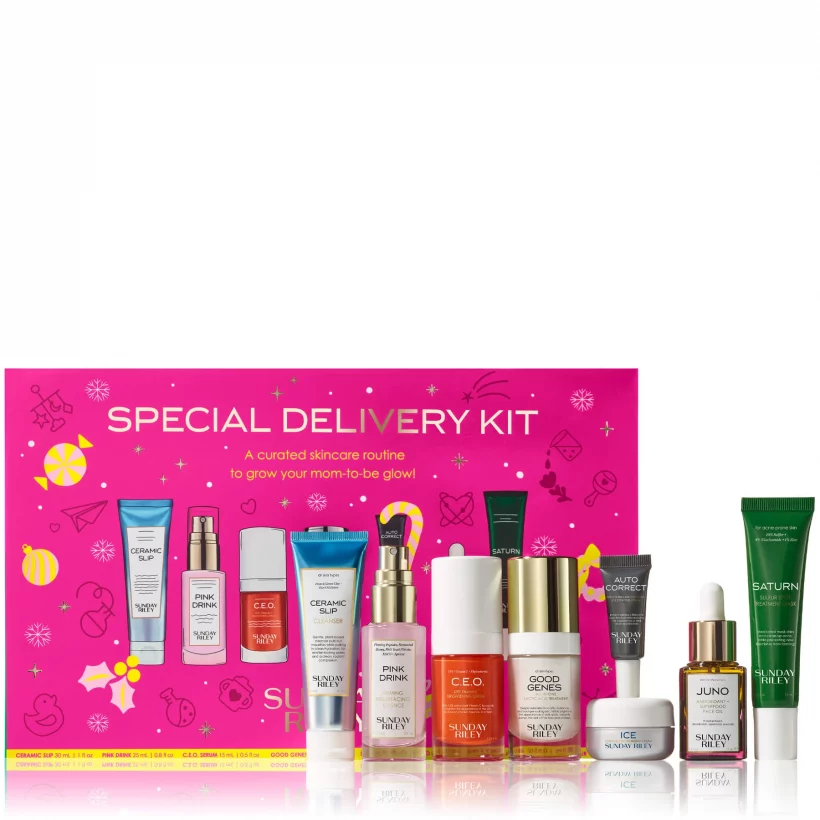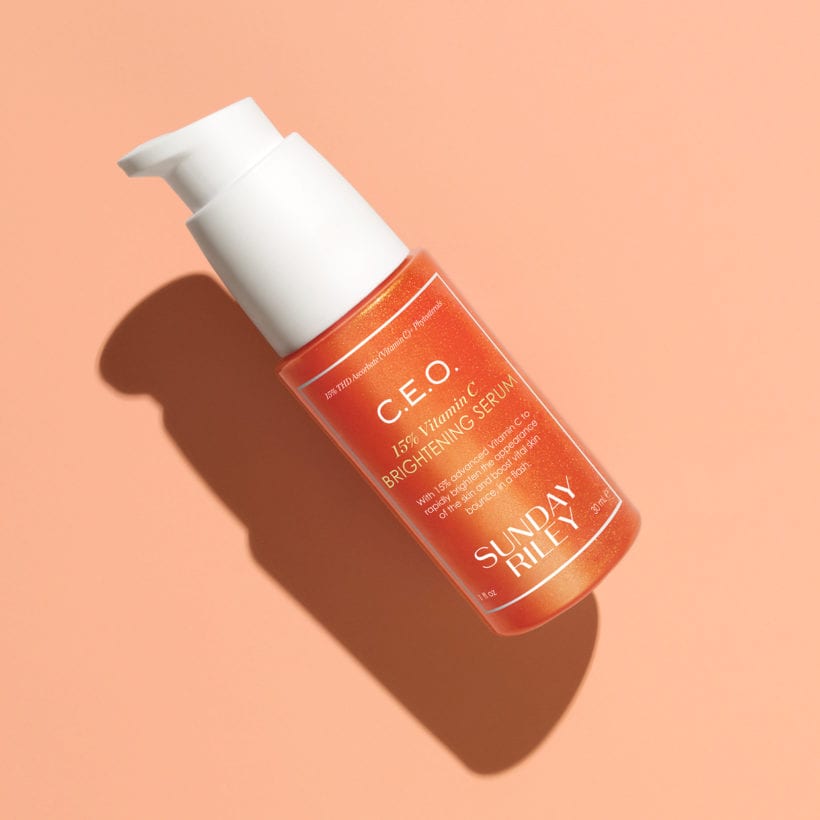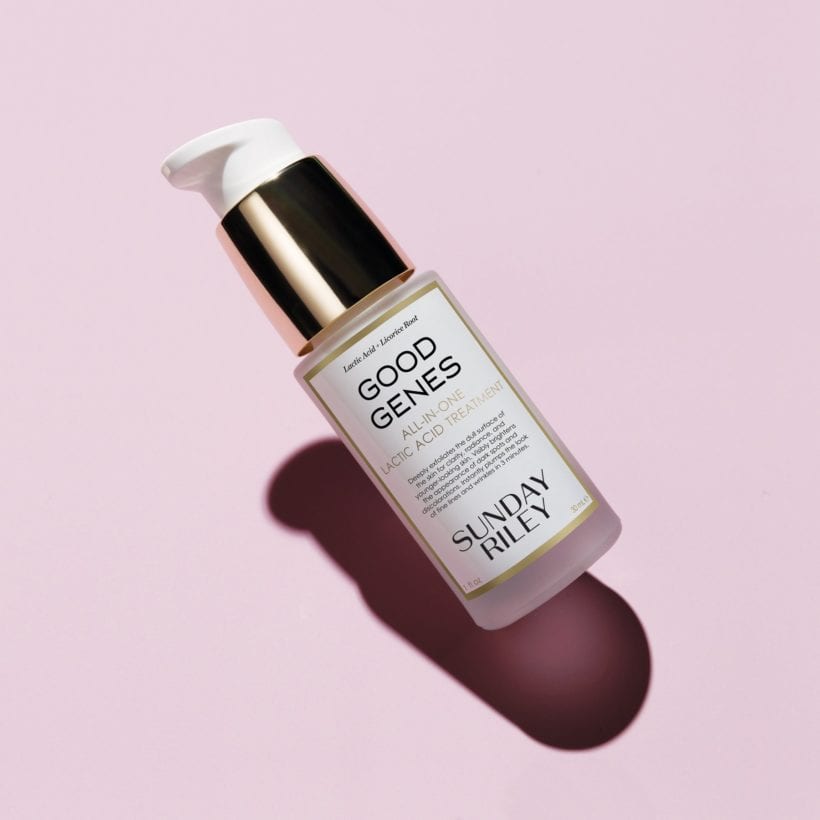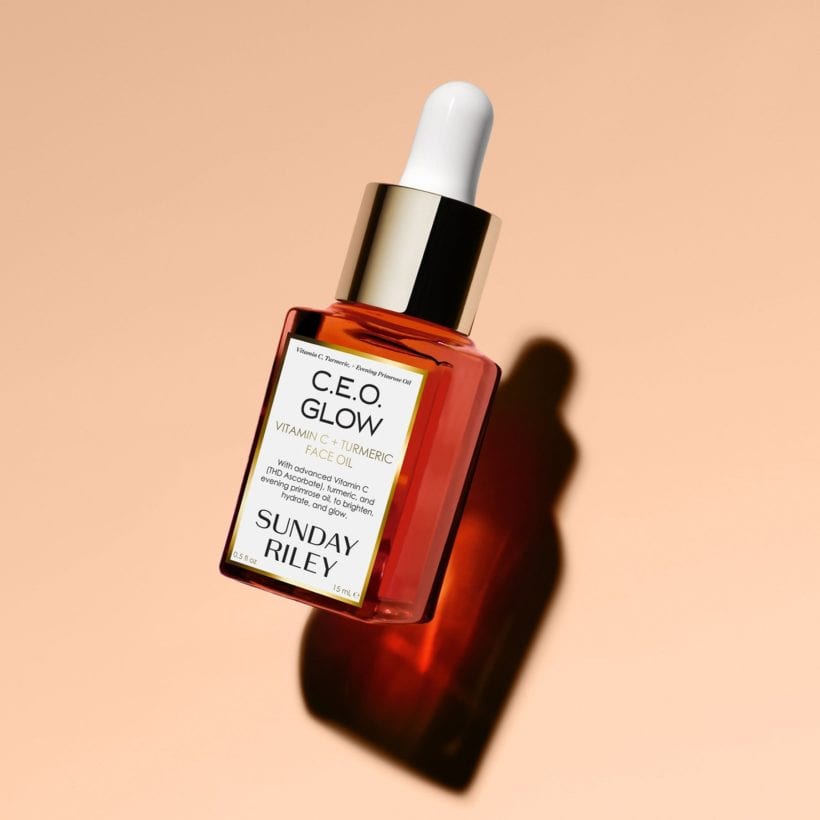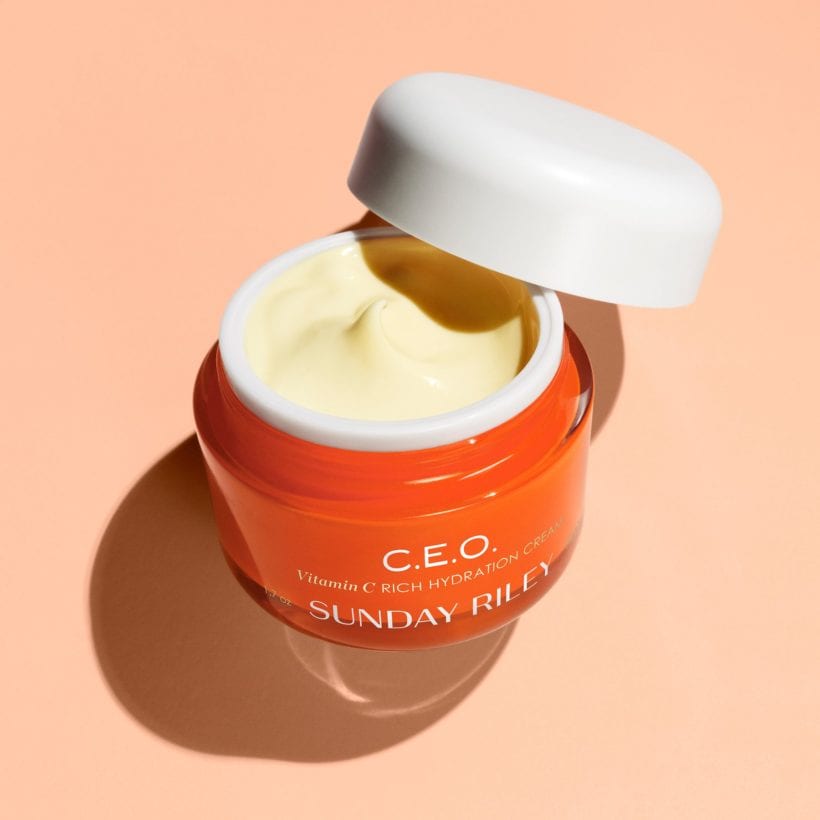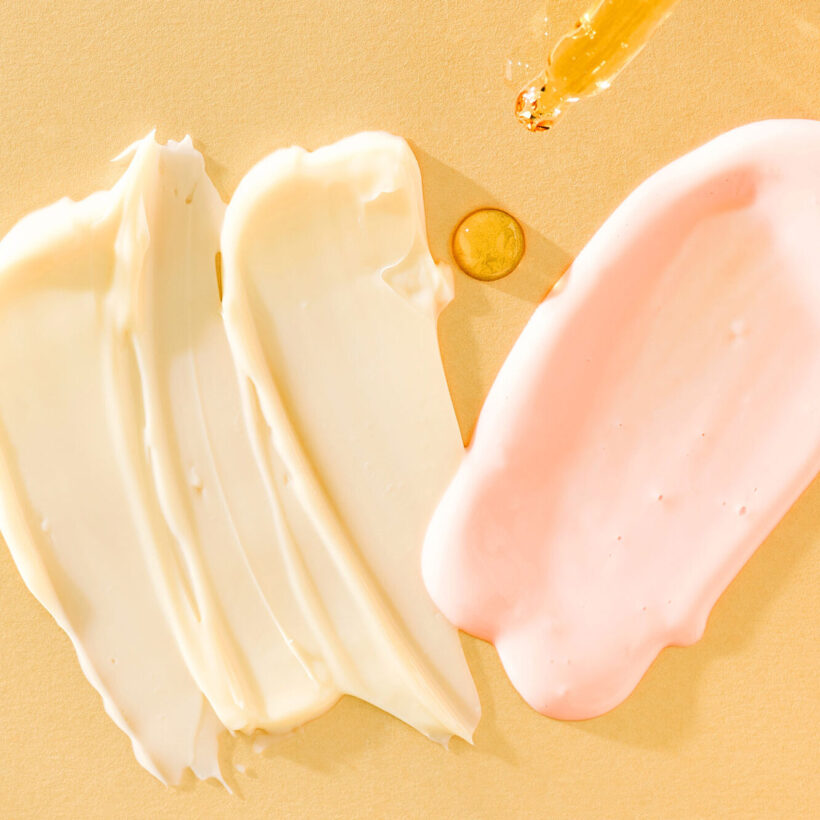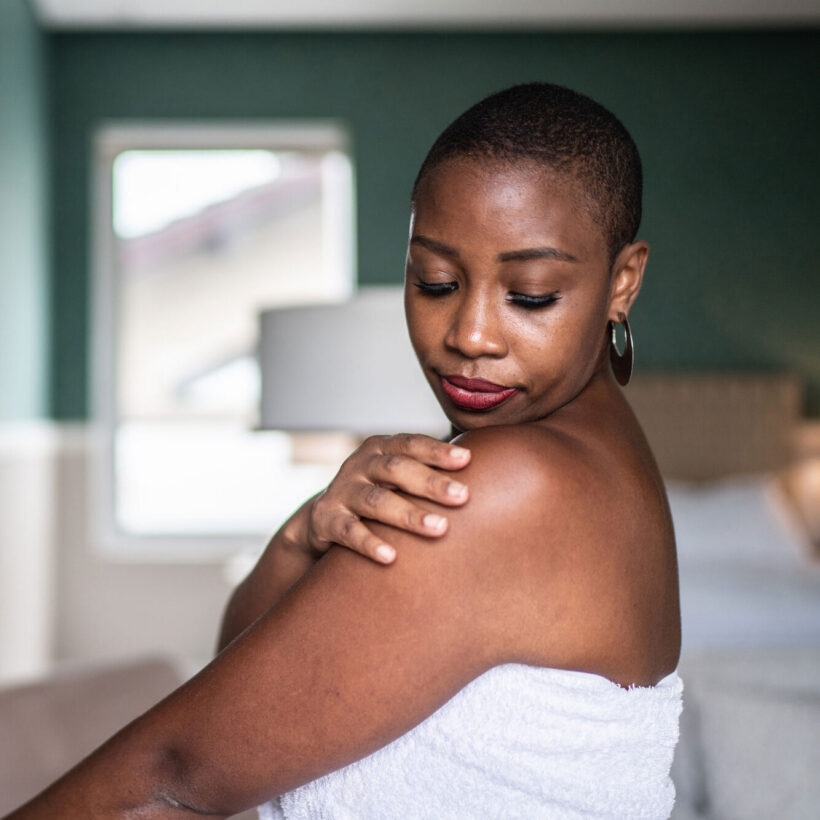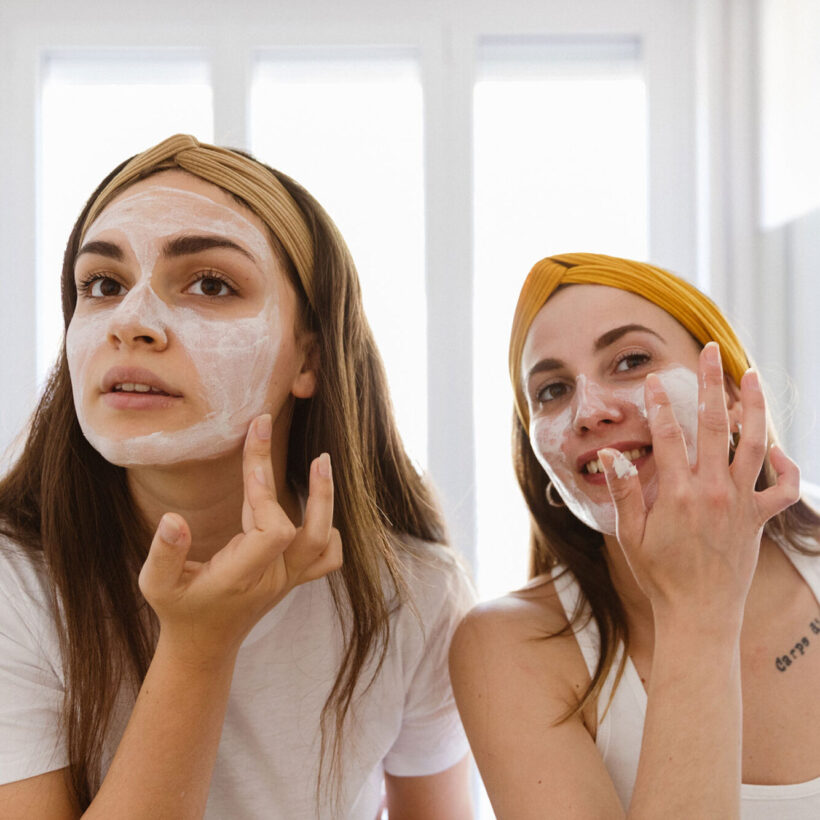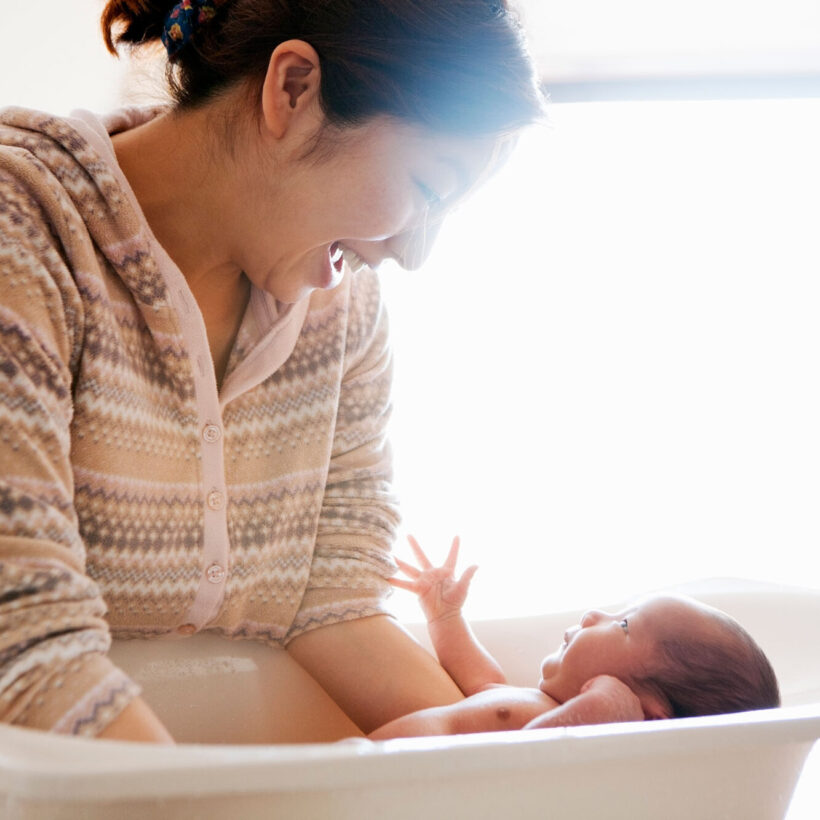During pregnancy, your body — and your skin — change a lot. That is not exactly a shocker. Neither is the fact that your pregnancy skincare routine will look a bit different from your normal regimen. There are the obvious changes (like needing something to deal with those new hormonal breakouts) and some that might not be so obvious (like the news that some of your go-to skincare products are not safe to use when you are pregnant). Here is everything you need to know about pregnancy skincare, according to dermatologists.
What to Expect … For Your Skin
First, the good news: The pregnancy glow is real. During the first two trimesters, you can expect your skin to look a lot better than usual, says Lily Talakoub, M.D., a board-certified dermatologist in Virginia.
Why? As your body is working hard to supply nutrients to your baby, it goes through a process called “neovascularization,” Talakoub explains, which is where new blood vessels start forming to carry the surge of vital nutrients. As a nice little bonus, that means a better complexion and less acne. “You have more vessels in your face, so the skin just looks brighter and better,” Talakoub says.
https://www.instagram.com/p/BoTHl4bgLM6/
Now for the bad news: The glow doesn’t last forever. “As the pregnancy gets into the third trimester, your hormones shift a little bit and the skin can break out in hormonal acne,” Talakoub says. “That’s the number one symptom that we get from pregnant women.”
Your skin might also change for the long-haul. “The most common concern that women have that doesn’t go away after the baby is delivered is melasma, skin hyperpigmentation due to hormones and UV radiation or light,” she says. Technically, anyone can get melasma, but it is much more likely to happen thanks to pregnancy hormones and, while a pain, it is normal.
You do want to watch for changing or new moles, says Shari Marchbein, M.D., a board-certified dermatologist in New York. “Moles should never grow or change during pregnancy” — that could be a sign of skin cancer, not just the result of changing hormones — “so seek immediate attention from your dermatologist for any new or changing (darkening, enlarging, or itchy) lesions,” she says.
What Skincare Products to Ditch While Pregnant
With all the skin changes your body is going through, your skincare routine, while you are pregnant, will need some changes, too. Updating your pregnancy skincare routine is a safety issue, as is learning how to stay healthy as your skin changes.
“The skin is the largest organ of the body. Anything you put on your skin is very likely to be absorbed into the blood,” says Talakoub. When you are pregnant, that means anything you put on your skin can be absorbed into your bloodstream and transmitted to your growing fetus, which is much more susceptible to chemicals than you are as a full-grown human. Translation: Skincare ingredients that might be totally safe for you to use when you are not pregnant, can be dangerous for your baby. “Be very cautious of what you’re using because anything and everything can absorb, especially if you’re using it on large surface areas like moisturizers applied all over the body,” Talakoub says.
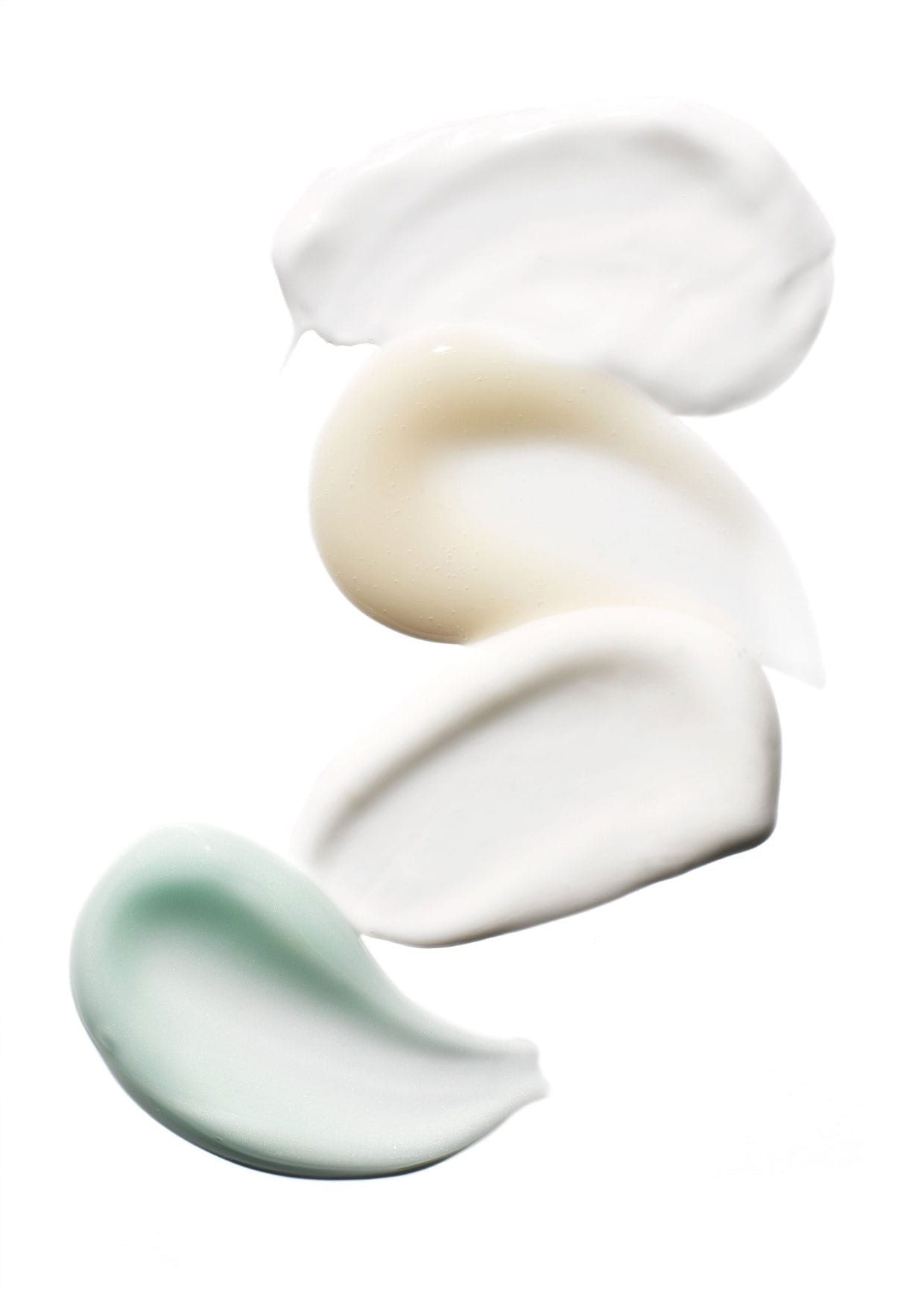
There are three main ingredients to watch out for, according to Talakoub: retinol, hydroquinone and salicylic acid.
Can You Use Retinol While Pregnant?
First up, retinol, a form of vitamin A which helps boost cell turnover. When you are not pregnant, it can leave you with smoother, younger-looking skin. But when you are expecting? Some forms of retinol have been linked to birth defects. While most retinoids are likely okay, there is not enough scientific data for doctors to endorse it yet, Marchbein explains. So, for the time being, she suggests dropping them from your skincare routine.
This can be particularly stressful, given that retinol is often tricky to spot on an ingredient label — it can appear under many names (there is retinyl palmitate, retinyl acetate, and retinyl linoleate, retinoic acid … the list goes on). When in doubt, ask your derm before using a skincare product while pregnant.
What About Hydroquinone?
Hydroquinone, which is often found in skin lightening formulas and spot treatments, can have similar effects, Talakoub says. If you use anything to brighten dark spots, check the label.
Is It Safe to Use Salicylic Acid While Pregnant?
Finally, doctors warn against salicylic acid — a common acne fighter. “Salicylic acid, in small concentrations, may not cause any issues but if you’re using it a lot —in your cleanser and then again in a moisturizer or acne-fighting cream — it can actually internalize in the blood and cause salicylism,” which can harm the baby, Talakoub says. If you are dealing with pregnancy-induced acne, this can be frustrating since salicylic acid is used in a majority of acne fighters. Also on the list to watch out for? Benzoyl peroxide. “It’s a little bit better than salicylic acid, but I still would avoid it in pregnancy,” she says.
What to Add While Pregnant
Anti-aging and acne-fighting products are pillars of pretty much any skincare routine. So, how are you supposed to survive without them for nine months? It is all about strategic swaps, Talakoub says.
Is Glycolic Acid Safe For Pregnancy?
“I love glycolic acid because it’s safe [during pregnancy],” she says. It does three things: exfoliates so your skin looks dewier, unclogs pores to help minimizes breakouts, and decreases pigmentation for a more even skin tone. “For any pregnant woman, I would say start that first because it addresses the two major pregnancy skin concerns — acne and pigmentation — all at once,” Talakoub says.
https://www.instagram.com/p/BmhAzNHA3dx/
Is Hyaluronic Acid Safe During Pregnancy?
Hyaluronic acid (HA) is safe to use during pregnancy Dr. Hadley King, a dermatologist says. Hyaluronic acid, “is found naturally in our skin, where it holds water and helps to keep the skin hydrated, dewy and plump. It is a powerful humectant — it can hold a thousand times its weight in water,” King says. Whether you have sensitive or acne-prone skin during your pregnancy, hyaluronic acid is a great and natural choice. Hyaluronic acid is a great topical hydrator, as long as either the environment is humid, or you combine it with emollients (like squalene, fatty acids, and ceramide) and occlusives (oils and waxes, like beeswax or silicone) to lock in the hydration so it doesn’t pull water out of the skin. This also makes it ideal for use in serum because it is lightweight and hydrating, and typically a serum is followed by a moisturizer to help lock in that moisture.
Can You Use Vitamin C Serum While Pregnant?
Vitamin C-based products (unlike vitamin A-derived retinol) are also safe to use during pregnancy. “If you have dark spots, instead of using hydroquinone, high strengths of vitamin C are very effective,” Talakoub says.
Because pregnancy skincare can be more complicated than choosing a baby name, it is worth consulting with your dermatologist or doctor to make sure all the products you are using are safe — and addressing any changing skin concerns. “There’s no label for pregnant women saying ‘do not use this,’” Talakoub says. “It can be really confusing which ingredients are in which products — even I before I was a dermatologist, would look at labels and not recognize certain terms,” she says. The bottom line for your pregnancy skincare routine: Scrutinize ingredient labels and chat with your doctor. You can also check out Sunday Riley’s line of pregnancy-safe skincare products.
We only recommend products we have independently researched, tested, and loved. If you purchase a product found through our links, Sunday Edit may earn an affiliate commission.
